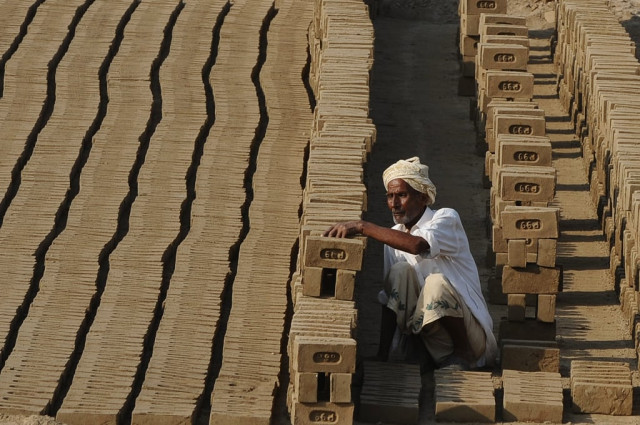Labour welfare: ‘Avoid past mistakes in project for kiln workers’
The last project didn’t achieve sustainable gains, says P&D report.

Bonded Labour Liberation Front Secretary General Syeda Ghulam Fatima raised questions over what the project aimed to achieve. She said that the government had not been able to prove that the earlier project had been successful. PHOTO: EXPRESS
After the completion of the Elimination of Bonded Labour on Brick Kilns (EBLIK) project last year, the provincial government announced in August, 2014, that it would launch the Integrated Project for the Elimination of Child and Bonded Labour at Brick Kilns, modelled closely along the EBLIK.
However, an evaluation report by the Planning and Developing Department says that EBLIK had not been successful in achieving its objective of helping eliminate bonded labour at brick kilns.
The report put forward recommendations based on surveys conducted among brick kiln owners and beneficiaries of the project.
The EBLIK began in 2008 and ended in June 2014. It had a budget of Rs123.367 million and focused on brick kilns in Kasur and Lahore districts. The Rs5 billion Integrated Project for the Elimination of Child and Bonded Labour at Brick Kilns extends the project to all districts in the province.
EBLIK Programme Manager Malik Nazir said that EBLIK was a positive step and had helped the government gain insights into how brick kilns worked and how they could help brick kiln workers. He said they had been able to convince the Brick Kiln Owners’ Association to not shut down the non-formal schools they had established under the project.
He said several ideas that they had not been able to implement under the EBLIK, including adult literacy and health awareness, would be implemented as part of the Integrated Project for the Elimination of Child and Bonded Labour at Brick Kilns.
Jamshed Sial, an evaluation specialist at the Planning and Development Department told The Express Tribune that the new project had a larger budget and sought to expand the EBLIK to the rest of the districts in the province. However, he said, the project was not likely to effect change if the report’s recommendations were not considered and if past mistakes were repeated.
Integrated Project for the Elimination of Child and Bonded Labour at Brick Kilns Director Javed Iqbal Gill said that he had not read the recommendations in the Planning and Development Department’s evaluation report. “I will look into them,” he assured.
The executive summary of the evaluation report says that the Labour Department could formulate a regulatory framework to ensure wage raises, protection of brick kiln workers and elimination of bonded labour.
Like the EBLIK, the Integrated Project for the Elimination of Child and Bonded Labour plans to continue to provide of interest-free microcredit loans to brick kilns workers with the aim of ending the vicious cycle of peshgi (advance payments). However, the evaluation report says that 94 per cent of the beneficiaries who received micro-credit loans under the EBLIK had continued to seek and receive advance payment (peshgi) saying that the practice was a chronic one and could not be upended by a project.
The report stresses the need for centres of non-formal education in brick kilns and underscores the need for more attention to be paid to them. It says there was no way to gauge how successful non-formal education centres under the project had been. It says the EBLIK did not have centralised data in this regard and raises questions on the authenticity of the statistics provided by the EBLIK. The EBLIK had said that 9,559 workers had been enrolled in non-formal education centres and 6,622 of them had entered the formal education system. The EBLIK said 110 out of them had passed their primary school examinations. The Planning and Development Department’s report, however, says that these figures could not be validated.
Bonded Labour Liberation Front Secretary General Syeda Ghulam Fatima raised questions over what the project aimed to achieve. She said that the government had not been able to prove that the earlier project had been successful.
“Yet they have re-launched it and given it a much bigger budget.” She said the EBLIK had not been able to achieve sustainable gains for brick kiln workers.
The Labour Department is currently recruiting staff and working on developing memorandums of understanding with other government departments which could help with its implementation.
Published in The Express Tribune, March 2nd, 2015.


















COMMENTS
Comments are moderated and generally will be posted if they are on-topic and not abusive.
For more information, please see our Comments FAQ